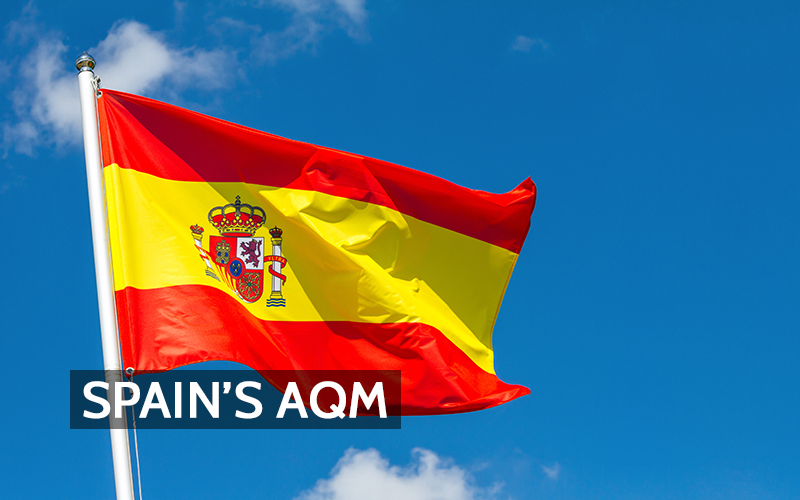Air quality monitoring and regulation have become crucial topics in Spain as the country faces growing environmental challenges. As part of the European Union (EU), Spain adheres to strict air quality standards designed to safeguard public health and the environment. This article explores Spain’s government regulations for air quality, the history of these measures, future prospects, private initiatives, and the role of tourism in shaping air quality considerations.
Government Regulations for Air Quality in Spain
Spain’s air quality regulations are primarily influenced by EU directives, particularly the Ambient Air Quality Directive (2008/50/EC). This directive establishes limits for key pollutants such as nitrogen dioxide (NO₂), particulate matter (PM10 and PM2.5), and sulfur dioxide (SO₂). Member states, including Spain, are required to monitor air quality, report data, and implement measures to reduce pollution levels if they exceed the established thresholds.
To comply with these directives, Spain has implemented several national plans, such as the National Air Pollution Control Program (NAPCP). This program sets specific targets to reduce emissions of pollutants like ammonia, nitrogen oxides, and volatile organic compounds. Additionally, Spain’s Ministry for the Ecological Transition and Demographic Challenge (MITECO) oversees the implementation of air quality measures and ensures alignment with EU policies.
How Spain Formed its Air Quality Regulations
Air quality monitoring in Spain gained momentum in the late 20th century as industrialization and urbanization led to significant pollution problems. The adoption of the EU’s Air Quality Framework Directive in 1996 marked a turning point. This directive required Spain to establish a network of monitoring stations and publish annual air quality reports.
In the early 2000s, Spain faced challenges meeting EU standards due to high levels of traffic-related pollution in cities like Madrid and Barcelona. These challenges prompted local governments to introduce measures such as low-emission zones and restrictions on diesel vehicles. For example, Madrid’s “Madrid Central” program, launched in 2018, restricts vehicle access in the city center to reduce NO₂ levels.
Looking to the Future
Spain is poised to strengthen its air quality regulations in response to growing public awareness and EU Green Deal targets. By 2030, Spain aims to achieve significant reductions in greenhouse gas emissions and air pollutants through the National Energy and Climate Plan (NECP). This plan emphasizes the transition to renewable energy, the electrification of transportation, and stricter emission controls for industries.
Furthermore, Spain is exploring innovative solutions such as smart air quality sensors and data-driven policies. Cities like Barcelona are piloting urban mobility plans that integrate real-time air quality data to optimize traffic flow and reduce emissions.
Spain’s Private Initiatives in Air Quality Monitoring
Beyond government efforts, private initiatives play a crucial role in improving air quality in Spain. Companies like Plume Labs and BreezoMeter provide advanced air quality monitoring tools and apps to help individuals and organizations track pollution levels. Additionally, Spanish startups like Libelium develop IoT-based air quality sensors for urban environments.
Nonprofit organizations also contribute significantly. Ecologistas en Acción, for example, advocates for cleaner air policies and conducts independent air quality studies. These initiatives complement governmental efforts by raising public awareness and promoting community engagement.
The Role of Tourism in Air Quality Considerations
Tourism, a vital sector in Spain’s economy, significantly impacts air quality, particularly in popular destinations like Barcelona, Mallorca, and the Costa del Sol. High volumes of air travel, cruise ship emissions, and increased vehicular traffic contribute to pollution in these areas. To mitigate these effects, local governments have introduced measures such as sustainable tourism plans and emission-reduction programs for cruise ships.
For instance, the Balearic Islands have implemented a Sustainable Tourism Tax to fund environmental protection projects, including air quality improvement initiatives. Additionally, cities like Barcelona are promoting eco-friendly tourism practices and expanding public transportation networks to reduce the environmental footprint of visitors.
Spain’s Challenges and Opportunities
While Spain has made significant progress in air quality management, challenges remain. Traffic emissions, industrial pollution, and agricultural ammonia emissions continue to exceed EU limits in certain regions. Addressing these issues requires stronger enforcement of existing regulations, increased investment in clean technologies, and greater public participation.
On the other hand, Spain’s commitment to the EU Green Deal and its robust renewable energy sector present opportunities for transformative change. By integrating air quality goals with climate action plans, Spain can achieve a healthier environment while fostering economic growth.
Spain’s approach to air quality monitoring and regulation demonstrates a strong commitment to environmental sustainability and public health. Through a combination of government policies, private initiatives, and community efforts, the country is addressing its pollution challenges and paving the way for a cleaner future. However, continued vigilance and innovation are essential to overcome remaining obstacles and ensure long-term success.
Related Article:
From Policy to Practice: The Evolution and Future of Air Quality Management in Pakistan
References
- https://ec.europa.eu/environment/air/quality/standards.htm
- https://www.miteco.gob.es/en.html
- https://www.madrid.es/portal/site/munimadrid
- https://www.barcelona.cat/ca
- https://www.ecologistasenaccion.org/
- https://www.illesbalears.travel/
- https://www.garrigues.com/en_GB/new/spain-update-national-air-pollution-control-programme-2023-2030-approved
- https://www.libelium.com/


